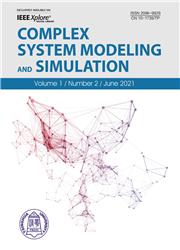A Coevolutionary Algorithm for Many-Objective Optimization Problems with Independent and Harmonious Objectives
引用次数: 0
Abstract
Evolutionary algorithm is an effective strategy for solving many-objective optimization problems. At present, most evolutionary many-objective algorithms are designed for solving many-objective optimization problems where the objectives conflict with each other. In some cases, however, the objectives are not always in conflict. It consists of multiple independent objective subsets and the relationship between objectives is unknown in advance. The classical evolutionary many-objective algorithms may not be able to effectively solve such problems. Accordingly, we propose an objective set decomposition strategy based on the partial set covering model. It decomposes the objectives into a collection of objective subsets to preserve the nondominance relationship as much as possible. An optimization subproblem is defined on each objective subset. A coevolutionary algorithm is presented to optimize all subproblems simultaneously, in which a nondominance ranking is presented to interact information among these sub-populations. The proposed algorithm is compared with five popular many-objective evolutionary algorithms and four objective set decomposition based evolutionary algorithms on a series of test problems. Numerical experiments demonstrate that the proposed algorithm can achieve promising results for the many-objective optimization problems with independent and harmonious objectives.具有独立协调目标的多目标优化问题的协同进化算法
进化算法是解决许多目标优化问题的有效策略。目前,大多数进化多目标算法都是为了解决目标相互冲突的多目标优化问题而设计的。然而,在某些情况下,目标并不总是冲突的。它由多个独立的目标子集组成,目标之间的关系事先未知。经典的进化多目标算法可能无法有效地解决这些问题。因此,我们提出了一种基于偏集覆盖模型的目标集分解策略。它将目标分解为目标子集的集合,以尽可能地保持非显性关系。在每个目标子集上定义一个优化子问题。提出了一种同时优化所有子问题的协同进化算法,其中提出了一个非显性排序来在这些子种群之间交互信息。在一系列测试问题上,将该算法与五种流行的多目标进化算法和四种基于目标集分解的进化算法进行了比较。数值实验表明,对于目标独立、协调的多目标优化问题,该算法可以取得良好的效果。
本文章由计算机程序翻译,如有差异,请以英文原文为准。
求助全文
约1分钟内获得全文
求助全文

 求助内容:
求助内容: 应助结果提醒方式:
应助结果提醒方式:


